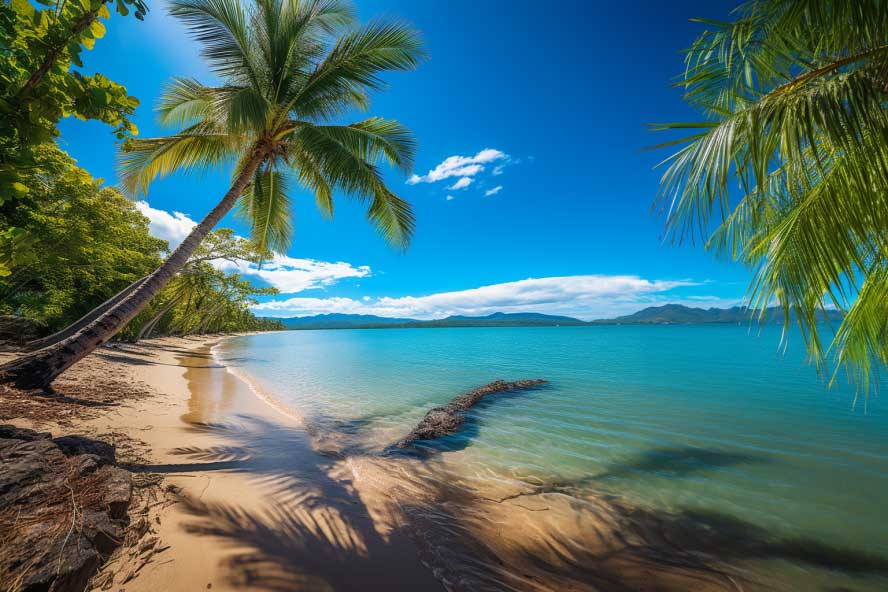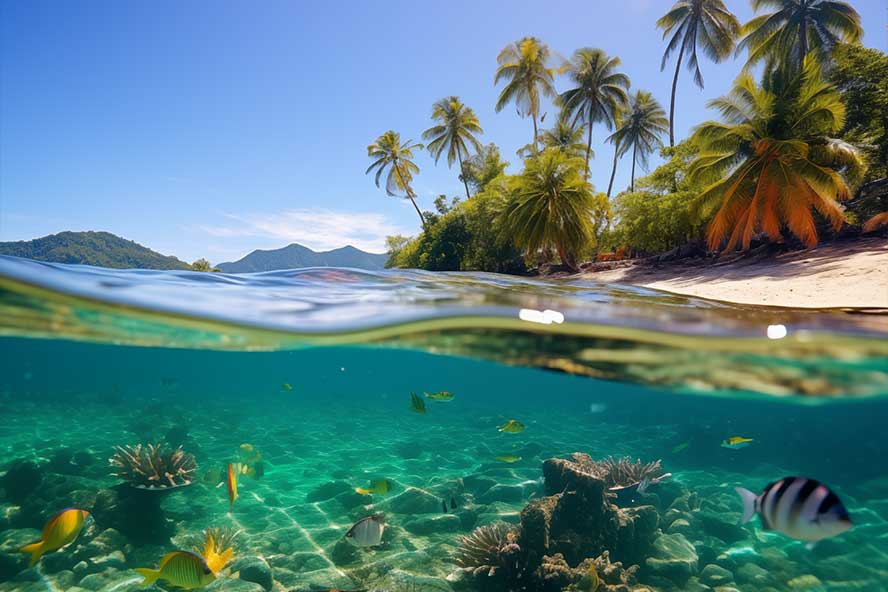Honouring the Guardians of the Great Barrier Reef: The Traditional Owners
The Great Barrier Reef, a natural marvel that spans over 2,300 kilometres along the Queensland coast, is not just a habitat for diverse marine life but also a cultural heritage site profoundly connected to Aboriginal and Torres Strait Islander peoples. These Traditional Owners have nurtured and preserved the reef for millennia, embodying a unique blend of cultural heritage and environmental stewardship.
The Cultural and Spiritual Connection to the Sea Country
Indigenous Reef Protection and Custodianship
Aboriginal and Torres Strait Islander peoples have been the custodians of the Great Barrier Reef, practising Sea Country management and protection long before the term conservation came into the global lexicon. Their traditional knowledge passed down through generations, emphasizes the interconnectedness of all living things and the importance of maintaining balance within the ecosystem.
Continuing Connection to Land, Sea, and Sky
The continuing connection of the Traditional Owners with their Sea Country encompasses more than just environmental management; it is a deep spiritual relationship with the land, sea, and sky. This connection is reflected in their ongoing efforts to protect and preserve the reef, including through the Traditional Use of Marine Resource Agreement program with the Authority.

Modern Challenges and Indigenous Responses
Despite facing historical and ongoing challenges, including dispossession and environmental threats, Aboriginal and Torres Strait Islander peoples remain committed to the reef’s protection. Through collaborative reef protection efforts, they are at the forefront of creating sustainable solutions that honour both their cultural heritage and the ecological significance of the reef.
Indigenous Leadership in Reef Conservation
Traditional Owners are increasingly leading conservation initiatives, advocating for policies and practices that integrate traditional knowledge with modern science. Their leadership is crucial in navigating the challenges of climate change, pollution, and overfishing, ensuring the reef’s resilience for future generations.
The Role of Traditional Knowledge in Marine Science
The rich traditional knowledge of the Aboriginal and Torres Strait Islander peoples is invaluable to marine science. It offers insights into sustainable ecosystem management, species behaviour, and environmental indicators. Recognizing and integrating this knowledge with contemporary science is essential for effective marine conservation strategies.
Cultural Significance and Historical Legacy
The cultural and historical significance of the Great Barrier Reef to its Traditional Owners is immense, encompassing spiritual beliefs, artistic expression, and community identity. Celebrating and preserving this cultural heritage is as important as the ecological conservation of the reef itself.

Frequently Asked Questions
What is Sea Country?
Sea Country refers to the marine and coastal environments that Aboriginal and Torres Strait Islander peoples have traditionally owned, used, and occupied. It encompasses a deep spiritual, cultural, and economic connection to marine and coastal ecosystems.
How do Traditional Owners contribute to reef conservation?
Traditional Owners actively participate in management decisions, employ traditional ecological knowledge to inform conservation practices, and lead initiatives that protect marine life and habitats.
Why is the integration of traditional knowledge important in marine science?
Integrating traditional knowledge enriches scientific understanding with centuries of observational data and sustainable management practices, offering holistic conservation approaches that respect cultural heritage and ecological complexity.
The guardianship of the Great Barrier Reef by its Traditional Owners is a testament to the enduring connection between culture and conservation. Their profound knowledge and respect for Sea Country offer invaluable lessons in sustainability and stewardship, emphasizing the need for collaborative efforts to protect this global treasure for future generations. Recognizing and integrating Indigenous wisdom with contemporary conservation efforts are crucial for the reef’s future, highlighting the importance of honouring and learning from the traditional custodians of the land, sea, and sky.
Explore resources like the Voice to Parliament initiative, which amplifies Indigenous voices in environmental governance, to discover more about the efforts of traditional owners in protecting the Great Barrier Reef and their cultural heritage.

Nath J
Airlie Beach and Whitsundays Specialist
Hi my name is Nath J.
I have lived and worked in Airlie Beach and Whitsundays since 2001. Over these 21 years I spent 19 of them in the local tourism industry, Including owning a travel store, working on overnight and day boats, plus sales and marketing for local business. The content on this page is taken from my knowledge of the tourism industry and hopefully provide you with the facts about Airlie Beach and the Whitsundays you were looking for.
Check Out All The Tours
Looking to visit Whitehaven Beach or the Great Barrier Reef, see all the tours.
More Great Barrier Reef Information
Get in Touch
Have Questions?
Ask Nath J
74 Whitsunday Islands 1 Whitehaven Beach
Hi, I’m Nath J, a long-time local who’s been lucky enough to live and work tourism in the Whitsundays since 2001.
Over the past two decades, I’ve helped visitors discover the best of this incredible region, from Whitehaven Beach and Hill Inlet to the hidden spots only locals know about. I started out managing boats and tours, and these days I run Ripple Effect Online, a tourism-focused digital marketing business helping local operators grow and connect with travellers like you.
I’ve written an ebook called Whitsunday Islands: A Journey through Paradise, created countless local travel guides, and earned recognition as a “Whitsundays Tourism Hero” from QTIC for my contribution to the region and gained First Nations Cultural Protocol training through QTIC as well. But more importantly, I’ve spent years listening to travellers, understanding what makes a trip unforgettable, and helping people plan the kind of experience they’ll talk about for years.
If you’re planning a visit to Whitehaven Beach or anywhere in the Whitsundays, I’m here to help you make it amazing.
Find me on Facebook and LinkedIn or drop me an email at info@nath-j.au.
